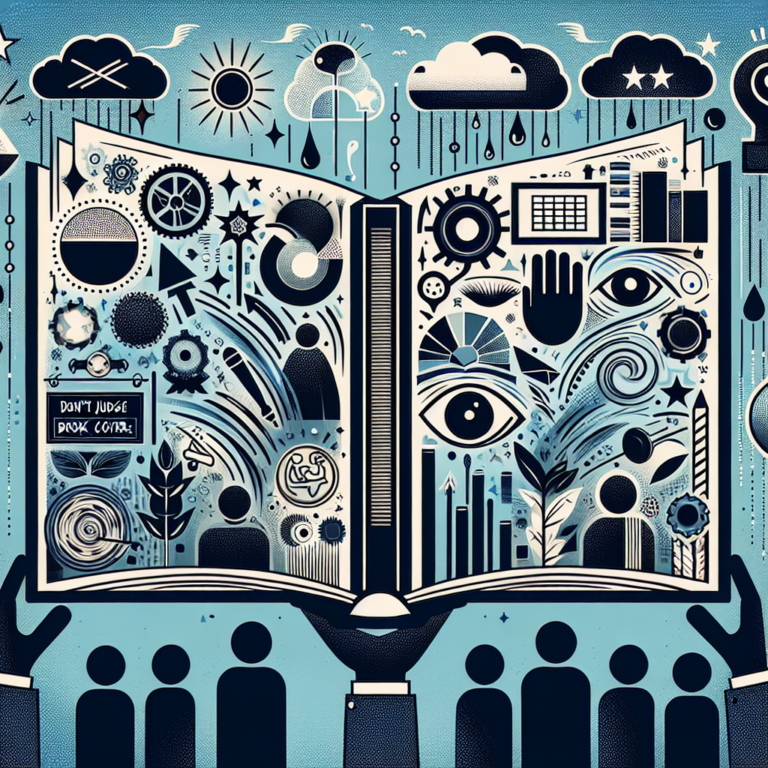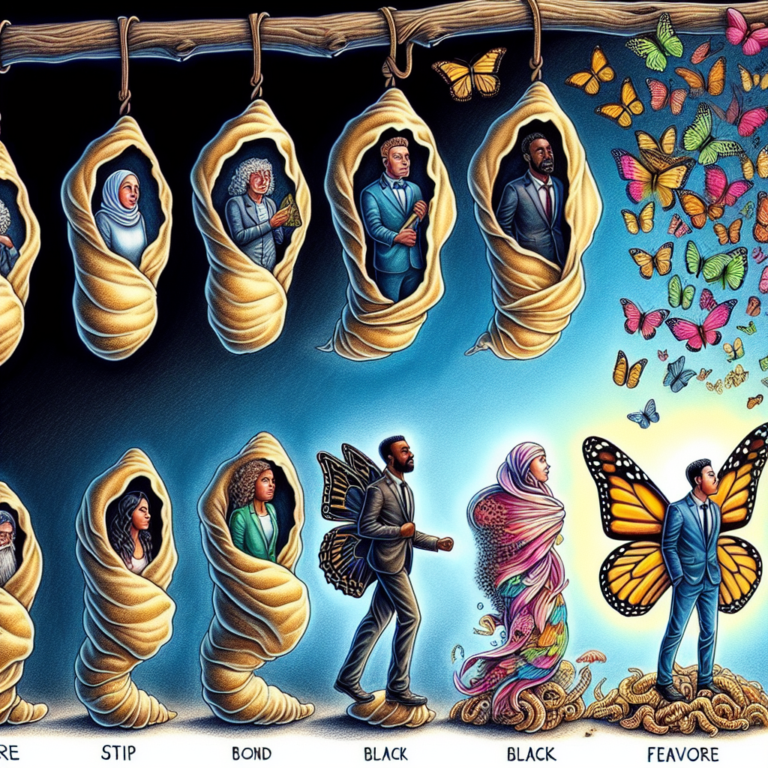What Is The Deeper Meaning Of “Knowledge Is Power”?
In this article, we explore the profound significance behind the popular saying, “Knowledge is power.” While these words may seem simple on the surface, they hold a much deeper meaning that can empower individuals to transform their lives. By understanding the true essence of knowledge and its transformative power, we are equipped to navigate through life’s challenges with confidence and embrace the opportunities for growth and success that await us. So, let’s dive into the fascinating world of knowledge and uncover its hidden potential together.
The Literal Meaning of Knowledge
Understanding the definition of knowledge
Knowledge can be defined as the understanding and awareness of facts, information, skills, and concepts acquired through experience, study, or education. It involves the accumulation and comprehension of various data, allowing individuals to make informed decisions, solve problems, and engage with the world around them. Knowledge encompasses a wide range of subjects, including academic, practical, experiential, cultural, and contextual understanding.
Examining the concept of power
Power, on the other hand, refers to the ability to influence, control, or affect the thoughts, actions, and outcomes of oneself or others. It is often associated with authority, success, and dominance. When we talk about the phrase “knowledge is power,” we are highlighting the idea that knowledge provides individuals with the means to exert influence, make a difference, and achieve their goals.
The Connection Between Knowledge and Power
Exploring the relationship between knowledge and power
Knowledge and power are inherently interconnected. The more knowledge an individual possesses, the greater their capacity to exert control and influence over their own lives and the world around them. By expanding their understanding and awareness, individuals become more equipped to navigate challenges, make informed choices, and seize opportunities.
The ability to influence and control
With knowledge comes the ability to influence and control outcomes. People who possess extensive knowledge in a particular field often become experts or authorities in that domain, and their expertise gives them the power to shape opinions, guide decisions, and make significant contributions. For example, doctors who possess medical knowledge can save lives, while scientists with advanced knowledge can revolutionize industries and improve the quality of life.
Knowledge as a tool for success
Knowledge is a powerful tool that paves the way for success. By acquiring knowledge in various areas, individuals gain a competitive edge in their personal and professional lives. Whether it is pursuing higher education, gaining technical skills, or developing expertise in a specific field, knowledge empowers individuals to overcome challenges, seize opportunities, and achieve their goals.
Knowledge as Empowerment
Empowering oneself through knowledge
Knowledge empowers individuals by providing them with the tools and understanding needed to take control of their lives. When you possess knowledge, you have the ability to make educated decisions, pursue your passions, and actively shape your own future. It gives you the confidence and self-assurance to face challenges head-on, knowing that you have the necessary skills and information to overcome obstacles.
Breaking free from ignorance and limitations
Ignorance is a state of not knowing or understanding something, and it often leads to limitations and missed opportunities. Knowledge allows individuals to break free from the constraints of ignorance by expanding their understanding of the world. It opens up new possibilities, broadens perspectives, and enables individuals to make more informed choices that align with their values and aspirations.
Enhancing personal growth and development
Knowledge serves as a catalyst for personal growth and development. It enables individuals to continually learn, adapt, and evolve throughout their lives. By seeking out new information, exploring different perspectives, and challenging existing beliefs, individuals can expand their minds, gain valuable insights, and become more well-rounded individuals. Knowledge empowers individuals to unlock their full potential and shape their own personal and intellectual growth.

Knowledge as a Catalyst for Change
Utilizing knowledge to drive change
Knowledge has the potential to drive significant change in society. By understanding the complexities of social, political, and economic issues, individuals armed with knowledge can identify areas in need of improvement and take action to effect positive change. Whether it is advocating for social justice, addressing environmental concerns, or promoting equality, knowledge empowers individuals to become catalysts for change and drive progress.
Creating positive impact in society
When individuals leverage their knowledge to create positive impacts in society, they have the power to transform communities and improve the lives of others. By sharing knowledge, volunteering, or working in fields that strive for the betterment of society, individuals can contribute towards resolving societal challenges, fostering inclusivity, and creating a more equitable and sustainable world.
Overcoming inequality and injustice
Knowledge acts as a powerful tool against inequality and injustice. By arming oneself with knowledge, individuals can challenge systemic biases, work towards dismantling oppressive structures, and advocate for marginalized communities. Education and awareness are crucial in empowering individuals to identify and address inequality, ultimately leading to a more just and equitable society for all.
The Dark Side of Knowledge
The potential for misuse and manipulation
While knowledge brings empowerment, it also carries the potential for misuse and manipulation. History has shown how individuals with knowledge have exploited it for personal gain or to exert control over others. Whether it is through propagating false information, manipulating public opinion, or creating harmful technologies, the dark side of knowledge underscores the importance of using knowledge ethically and responsibly.
The danger of knowledge without morality
Knowledge without a sense of morality can lead to dangerous consequences. In the absence of ethical considerations, individuals may utilize their knowledge to harm others, advance personal agendas, or perpetuate unethical practices. It is important to recognize that knowledge alone is not enough; it must be accompanied by a strong ethical framework to ensure its application is for the greater good.
Addressing ethical concerns
To counteract the negative implications of knowledge, it is crucial to address ethical concerns. Education systems, institutions, and individuals have a responsibility to promote ethical behavior, critical thinking, and empathy alongside knowledge acquisition. By fostering a culture that values ethical considerations, individuals can ensure that knowledge is used for the betterment of humanity rather than for nefarious purposes.
Different Forms of Knowledge
Traditional academic knowledge
Traditional academic knowledge refers to the knowledge acquired through formal education systems, such as schools and universities. It encompasses subjects like mathematics, science, history, literature, and philosophy. Academic knowledge provides a structured foundation for learning, critical thinking, and intellectual development.
Experiential and practical knowledge
Experiential and practical knowledge is gained through hands-on experiences, personal interactions, and real-world applications. It involves learning from direct involvement, trial and error, and practical problem-solving. This form of knowledge is often acquired through apprenticeships, internships, or practical training, and it equips individuals with skills that are directly applicable to specific jobs or industries.
Cultural and contextual knowledge
Cultural and contextual knowledge refers to the understanding of different cultures, customs, and social contexts. It involves recognizing the diversity of human experiences, values, and beliefs and appreciating the impact of cultural backgrounds on individuals and communities. This form of knowledge fosters empathy, cultural sensitivity, and the ability to navigate diverse environments.
Knowledge as a Lifelong Pursuit
Continual learning and intellectual growth
Knowledge is a lifelong pursuit that requires continuous learning and intellectual growth. The world is constantly evolving, and as such, individuals must adapt and stay informed to remain relevant. Engaging in lifelong learning ensures that knowledge and skills remain up to date, allowing individuals to embrace new opportunities and navigate a rapidly changing world.
The importance of curiosity and exploration
Curiosity and exploration are fundamental to the pursuit of knowledge. By nurturing a sense of curiosity, individuals are motivated to ask questions, seek answers, and explore new ideas and perspectives. Curiosity and exploration go hand in hand, encouraging individuals to step outside their comfort zones, challenge assumptions, and discover new realms of knowledge.
Adapting to a rapidly changing world
In today’s fast-paced and interconnected world, knowledge is essential for adapting to change. The rapid advancement of technology, globalization, and shifting societal norms necessitates a continuous process of learning and unlearning. Individuals who embrace a growth mindset and actively seek new knowledge and skills are better equipped to thrive in a dynamic and ever-changing environment.
Knowledge and Personal Empowerment
Building self-confidence and self-worth
Knowledge plays a crucial role in building self-confidence and self-worth. When you possess knowledge in a particular field or area of interest, you gain a sense of mastery and expertise. This expertise, in turn, boosts your self-confidence, enabling you to tackle challenges with resilience and conviction. Knowledge empowers individuals to believe in their abilities, fostering a positive self-image and a sense of worthiness.
Taking control of one’s life
Acquiring knowledge allows individuals to take control of their lives and make informed decisions. Whether it is making choices about career paths, personal relationships, or lifestyle habits, knowledge provides individuals with the tools to evaluate options, analyze consequences, and make choices aligned with their values and aspirations. Taking control of one’s life empowers individuals to shape their own destiny and navigate through life more effectively.
Becoming independent and self-reliant
Knowledge is instrumental in fostering independence and self-reliance. When individuals possess the necessary skills, information, and understanding, they are less reliant on others for guidance or support. By being self-reliant, individuals have the freedom to pursue their goals, make autonomous decisions, and overcome challenges without being limited by external factors. Knowledge empowers individuals to take charge of their own lives, leading to personal fulfillment and a sense of autonomy.
Knowledge as a Bridge to Opportunities
Opening doors to new possibilities
Knowledge serves as the key to opening doors to new possibilities and opportunities. Whether it is accessing higher education, pursuing career paths, or exploring new interests, knowledge equips individuals with the tools necessary to seize opportunities that align with their goals. With knowledge, individuals can navigate through various industries, network with like-minded individuals, and uncover hidden opportunities that might otherwise remain inaccessible.
Enhancing career prospects
In the professional realm, knowledge is often the differentiating factor between success and stagnation. By continuously expanding one’s knowledge, individuals enhance their skillset, expertise, and marketability. Whether it is acquiring specialized knowledge in a specific field, gaining industry certifications, or staying up to date with the latest trends, knowledge enables individuals to stand out in competitive job markets, secure desirable positions, and propel career growth.
Accessing information and resources
Knowledge grants individuals access to a vast array of information and resources. In an era of technological advancement, information has become increasingly accessible, and knowledge allows individuals to discern and evaluate the credibility of sources. By arming oneself with knowledge, individuals can make more informed decisions, engage in critical thinking, and utilize relevant resources to further their personal and professional pursuits.
The Power of Shared Knowledge
Collaborating and exchanging ideas
Shared knowledge fosters collaboration and the exchange of ideas. When individuals come together to share their knowledge and insights, they can collectively tackle complex problems, generate innovative solutions, and build upon each other’s expertise. Collaborating through shared knowledge leads to synergistic outcomes, as diverse perspectives and expertise combine to create new possibilities and opportunities.
The strength of collective intelligence
Collective intelligence refers to the idea that a group’s intelligence is greater than the sum of its individual members. When individuals share their knowledge and pool their resources, they tap into the strength of collective intelligence. Through collaboration, shared knowledge amplifies each individual’s capabilities, enabling groups and communities to solve complex challenges, drive progress, and achieve common goals.
Empowering others through knowledge sharing
Sharing knowledge empowers others to learn, grow, and achieve their own goals. By actively sharing knowledge, individuals contribute to the collective empowerment of others, fostering a culture of collaboration and growth. Whether it is mentoring, teaching, or engaging in community initiatives, sharing knowledge creates a ripple effect of empowerment, enriching the lives of individuals and communities as a whole.
In conclusion, knowledge is not only a source of personal empowerment but also a catalyst for positive change and societal progress. Through acquiring knowledge, individuals gain the ability to exert influence, challenge inequality, and drive transformation. However, it is crucial to address the ethical concerns and understand the potential risks associated with knowledge. By embracing different forms of knowledge, lifelong learning, and the power of shared knowledge, individuals can unlock their true potential and make a lasting impact on the world.







